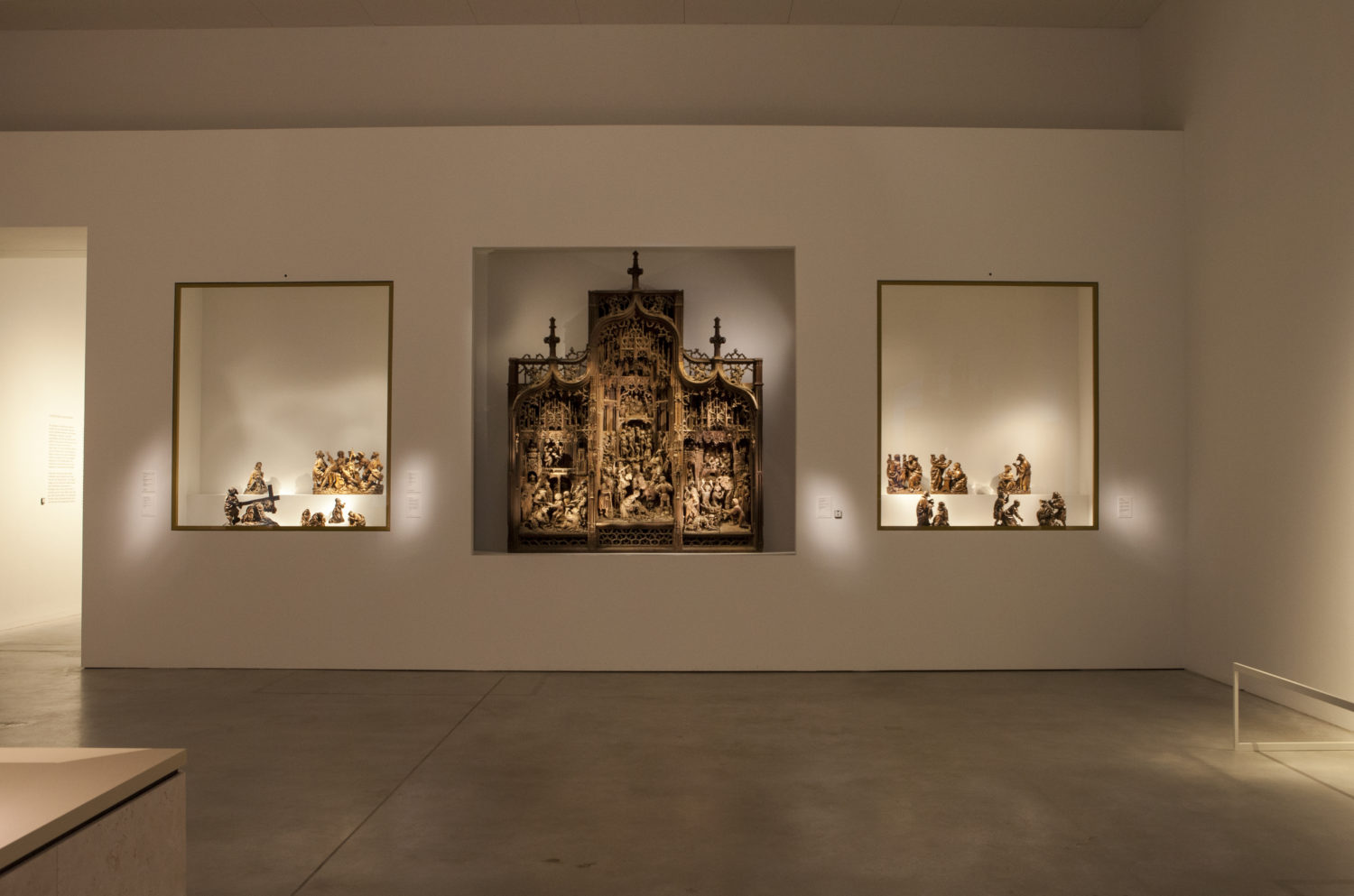
Police have said they plan to seize six religious sculptures that are on display at an art museum in the Belgian town of Leuven. The authorities acted following a complaint by a Belgian church that has long sought to reclaim the fragments of a 16th-century altarpiece, which were stolen at the outbreak of World War I.
For now the woodcarvings remain on view in an exhibition at the museum, M Leuven, which is dedicated to the Flemish Northern Renaissance sculptor Jan Bormon and his sons. But they are subject to a “soft” or administrative seizure, which means that after the exhibition closes on January 26, they could ultimately be returned to the church or to Rotterdam’s Museum Boijmans Van Beuningen, which loaned the sculptures to the Leuven exhibition. (Immediately following the exhibition they are slated to be restored at the Royal Institute for Cultural Heritage.)
Although M Leuven knew about the sculptures’ history, the seizure was unexpected. “We are surprised by the complaint,” said the museum’s chair, Denise Vandevoort, in a statement. “Museum Boijmans Van Beuningen and the Church Fabric Committee of Boussu have been negotiating about these altarpiece fragments for years.”
The head of the museum’s Old Masters department, Peter Carpreau, also said M Leuven had complied with all international regulations for the loan. “[We have] been involved in hundreds of exhibition loans over the past decade and this is the first time that anything like this has happened,” Carpreau added.
Members of the Church of Saint Gaugericus in Boussu-lez-Mons complained to the Belgian authorities after learning that the statues were part of the exhibition “Borman and Son.” The church had been in talks with the Museum Boijmans Van Beuningen for several years regarding a possible long-term loan of the altarpiece fragments back to the church. But the church’s treasurer, Michel Raquet, told the Belgian broadcaster RTBF, “You do not loan works to people who own them.” He added that it is hiring a lawyer.
The director of the Boijmans, Sjarel Ex, told the Belgian publication De Standaard that the statues were donated to the museum after a Rotterdam collector, Jacques Schoufour, purchased them in good faith in 2006.
The fragments have been attributed to Pasquier Borman by researchers from M Leuven, the University of Namur, the University of Toronto, KU Leuven, and the Royal Institute for Cultural Heritage. The exhibition includes some 120 sculptures as well as paintings, tapestries, and works on paper.